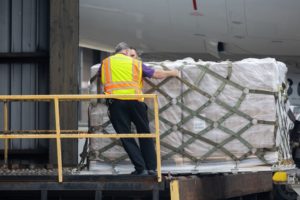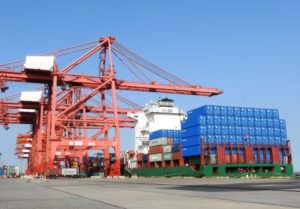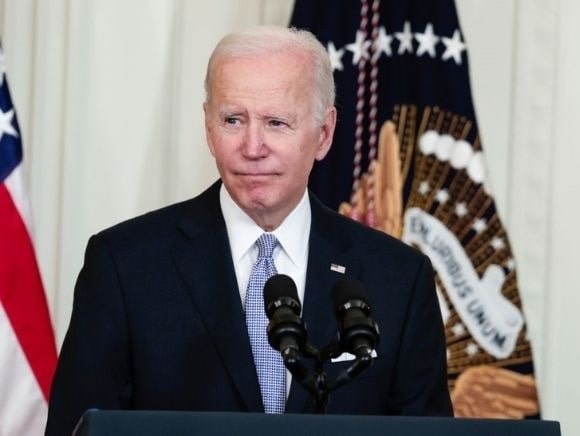Speaking during a news conference with Japanese Prime Minister Fumio Kishida, President Joe Biden revealed that his team is looking at the possibility of cutting tariffs on Chinese goods to curb inflation. “I am considering it. We did not impose any of those tariffs. They were imposed by the last administration and they’re under consideration,” he told reporters, adding that he will push the Organization of the Petroleum Exporting Countries (OPEC) to increase production levels to lower energy prices.
It has already been five years since former President Donald Trump fired the opening salvo in his trade war with China, slapping tariffs and restrictions on goods coming from Beijing. Now that inflation is spiraling out of control, President Biden and his administration are weighing the possibility of removing these penalties to help curb higher prices. But while removing trade barriers can be a positive step, the White House potentially eradicating tariffs would not result in any meaningful change.
China: A Disaster Story
[substack align=”right”]The Chinese government has adopted a COVID Zero strategy, a plan involving public health authorities lowering the coronavirus case count to zero. Despite the Chinese Communist Party (CCP) employing egregious and authoritative measures, outbreaks have become prevalent throughout the country, with thousands of new cases being reported each day. As a result of officials panicking, the government has transferred the Chinese economy into disaster mode, causing public policymakers to renew their fiscal and monetary support and relief tactics that will further strain the nation’s finances.
For the last couple of months, Shanghai has been under lockdown, destroying the city’s status as China’s economic engine. Indeed, this major urban center is home to factories and plants that produce Tesla automobiles, Apple iPhone screens, and 3M plastics. What’s more, Shanghai is a critical port city, meaning that thousands of cargo containers are shipped and received every day.
The problem is that most plants have shut down or curtailed operations in response to the many public health restrictions the government imposed. Only a select few companies that have been identified as a priority have been permitted to operate earlier than others. The rest are now playing a game of catch-up, leading to pent-up supply, which is creating a logistics nightmare. As businesses accelerate output, two issues are unfolding: Firms lack the necessary resources to ramp up production, and their goods will be stuck at the port due to the heavy traffic between Shanghai and the western ports of the United States.

(Photo by Nathan Posner/Anadolu Agency via Getty Images)
Port congestion and delays have returned with a vengeance. Data from Project44, a company that monitors global supply chains, show that shipment delays between China and the major US and European ports have quadrupled in the last two months. Put simply, the backlogs are going to be next to impossible to clear up, especially since one-fifth of container ships are paralyzed outside congested ports.
Even if China were to put the kibosh on its COVID Zero endeavors, shipping logistics would still be a nightmare – perhaps even worse since it would likely manufacture the same issue of companies taking advantage of reopening by expanding capacity and flooding ports with goods. Either way, US consumers could be missing out on several key shopping events: back to school, Halloween, and Christmas.
“Shipping is being very materially disrupted. In 2021, we calculated about six weeks were needed to recover/get back to normal flows for every week of shutdown. Given this effective shutdown is in its third week, we can expect three months or more before flows are restored to normal levels,” leader of the analytics practice for the Americas at consulting firm Kearney, told FreightWaves.
In the end, even if Biden were to eliminate all of the Trump-era tariffs, it would hardly put a dent in the 40-year high consumer price index (CPI) or the all-time high producer price index (PPI). For years, the importation of affordable Chinese goods has helped America enjoy lower inflation rates due to a stronger US dollar and the Red Dragon’s cheap labor. But now that COVID-19 and the global supply chain crisis have essentially crippled the world’s second-largest economy, there is no longer a distinct advantage of depending on Beijing for goods and services.
Reminder: Tariffs Are Bad

(Photo by TPG/Getty Images)
Every administration – Democrat or Republican – will propose tariffs to stop countries from ripping off the United States, reduce the trade deficit, and boost US exports. Beijing is still ripping off the US, and the trade gap has never been wider, but at least US shipments to the rest of the world are at a record high. Whether this trend continues once conditions in the global economy stabilize or not remains to be seen. What is known, however, is that tariffs only emphasize the demands of politicians rather than the preferences of consumers. During normal times, tariffs and government-managed trade can lead to job losses and higher prices. It is estimated that import levies hike consumer costs by about $51 billion per year.
The newest development in the global economy is export bans, such as India’s restriction on wheat shipments and Argentina’s penalty on corn exports. Governments contend that they need to ensure food security when global inventories of consumer staples are dwindling. The desperation is understandable, but it is also based on specious reasoning since it would exacerbate worldwide trade challenges. Ultimately, the Everything is an Emergency Economy is the fault of the government, from the lockdowns to soaring inflation. Pre- and post-crisis tariffs are the cherry on top that cuts off one’s nose to spite one’s face. This protectionist idea is based on outdated philosophies that add to the planet’s woes – and Americans’ moth-filled wallets.




